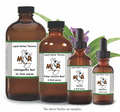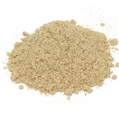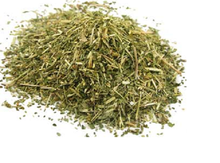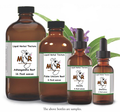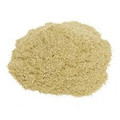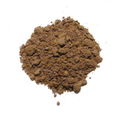 Loading... Please wait...
Loading... Please wait...- Home
- Bulk Herbs
- Herbs (O-P)
- Passionflower Powder
- Home
- Herbs - Organically Grown & Wild Crafted USA
- P Q
- Passionflower Powder
- Home
- Herbs from Hawaii
- Passionflower Powder
Product Description
Passionflower, Powder
Wild Crafted - Kauai, Hawaii
Also Known As –Passiflora incarnata, Passiflora caerulea, Apricot Vine, Blue and Purple Passionflower, and Maypop.
Overview - The passionflower vine is a beautiful plant with striking flowers and apricot sized fruit. The flower is a very powerful herb because it can calm twitching and tension without depressing the respiratory system like most other sedatives. It does not relieve as much pain as other sedatives, but it is still helpful in relieving discomfort.
Medicinal Uses - Passionflower is a sedative, which makes it effective against insomnia and nervousness. Because of this tranquilizing effect, it also helps anxiety while remaining non-addictive. It also helps the digestion by relaxing spasms in the intestinal tract. The herbal remedy has also been used for epilepsy, hyperactivity and high blood pressure. Other uses include irritable bowel syndrome, premenstrual symptoms, and back pain.
Other Uses – Passionflower is edible. The fruit can be eaten fresh or cooked into jellies and jams. The leaves can be eaten fresh in salads or cooked like greens.
Herbs to Combine/Supplement - In Europe, passionflower is added to many pharmaceutical formulas for anxiety, heart palpitations, high blood pressure and nervous disorders.
Parts Used - The leaf, stem and flower can be used fresh or dried.
Precautions - There are no known side effects for passionflower, but it is not recommended for pregnant women or children under the age of two. If you are already taking a tranquilizer or sedative, seek the advice of a professional before adding this herb as an herbal medicine. The nervous system can become depressed if it is taken in large doses for too long which can result in mental fogginess and fatigue.
Suggestions - It is best to begin with a low dose taken frequently to find out how your body reacts. Doses can be increased once you know how your body handles it.
- Passionflower can be taken as a tea, a tincture or in capsules.
- For severe anxiety or stress, you can take 3 or 4 cups of herbal tea every day. Once you feel some relief, the dosage can be lowered.
- For anxiety or muscle tension, take 30 to 60 drops of tincture twice a day. If that does not relieve your problem, you can up the dose to every two or three hours if you have no adverse reactions to passionflower. Once you get some relief, the dose can be lowered again.
- Capsules can be taken in doses of 2 capsules two or three times per day. If you suffer from insomnia, take a larger dose an hour before bed.
Disclaimer - The information presented herein by Mountain Maus’ Remedies is intended for educational purposes only. These statements have not been evaluated by the FDA and are not intended to diagnose, cure, treat or prevent disease. Individual results may vary, and before using any supplements, it is always advisable to consult with your own health care provider.







